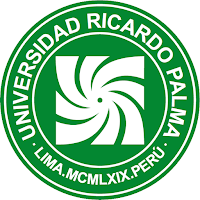Narrating confinement: "Liberation", a tragic and prison story from Escalas by César Vallejo
Narrating confinement: "Liberation", a tragic and prison story from Escalas by César Vallejo Narrating confinement: "Liberation", a tragic and prison story from Escalas by César Vallejo
Article Sidebar
Main Article Content
Miguel Ángel Barreto Quiche
Abstract
The purpose of this paper is to develop a textual analysis of "Liberación", a story that is part of César Vallejo's narratives collected under the title of Escalas (1923), a work printed at the Talleres Tipográficos de la Penitenciaría de Lima (Lima Penitentiary Typographical Workshops). In "Liberación" we note common topics for the narrative construction of the prison experience, such as injustice, memory and fear. We observe that these topics metaphorize confinement as an insufferable and hopeless space, mainly for Jesús Palomino, the protagonist, whose tragic states or psychological disturbances increase as a result of confinement. Our analysis concentrates on exploring the protagonist in the scenes influenced by these three topics.
Article level metrics
Downloads
Metrics
Article Details

This work is licensed under a Creative Commons Attribution 4.0 International License.
La revista utiliza una licencia Creative Commons para mostrar a los lectores y a los usuarios cómo se pueden utilizar los contenidos publicados.
Los contenidos publicados en la revista están bajo una licencia CC-BY 4.0, la cual permite:
- Compartir, copiar y redistribuir el material en cualquier medio o formato.
- Adaptar, remezclar, transformar y construir a partir del material para cualquier propósito, incluso comercialmente.
Bajo los siguientes términos:
- Atribución. Usted debe dar crédito de manera adecuada, brindar un enlace a la licencia, e indicar si se han realizado cambios. Puede hacerlo en cualquier forma razonable, pero no de forma tal que sugiera que usted o su uso tienen el apoyo de la licenciante.
La información de licencia se muestra e incrusta en las páginas de artículos y en ficheros de texto completo como sigue:
«Este obra está bajo una licencia de Creative Commons Reconocimiento 4.0 Internacional».
Carvalho, A. R. (2009). Escalas Melografíadas o el «yo carcelario». Confluenze. Rivista di Studi Iberoamericani, 1(2), 290-295. https://confluenze.unibo.it/article/view/1663/1036
González Montes, A. (2002). Escalas hacia la modernización narrativa [Tesis de maestría, Universidad Nacional Mayor de San Marcos]. https://sisbib.unmsm.edu.pe/bibvirtual/libros/Literatura/escal_moder/contenido.htm
Marina, J. A. y López, M. (1999). Diccionario de los sentimientos. Editorial Anagrama.
Mattalía, S. (1988, abril-mayo). Escalas melografiadas: Vallejo y el vanguardismo narrativo. Cuadernos Hispanoamericanos. Homenaje a César Vallejo, 1(454-55), 329-343. https://www.cervantesvirtual.com/descargaPdf/escalas-melografiadas-vallejo-y-el-vanguardismonarrativo/
Neale-Silva, E. (1987). César Vallejo, cuentista. Escrutinio de un múltiple intento de innovación. Salvat.
Real Academia Española (2020a). Injusticia. Diccionario de la lengua española. https://dle.rae.es/injusticia
Real Academia Española (2020b). Miedo. Diccionario de la lengua española. https://dle.rae.es/miedo?m=form
Reyes Mate, M. (2011, julio-diciembre). Tratado de la injusticia. XX Conferencias Aranguren. Isegoría. Revista de Filosofía Moral y Política, (45), 445-487. https://digital.csic.es/bitstream/10261/136294/1/Tratado_de_la_injusticia.pdf
Silva-Santisteban, R. (2004). César Vallejo y su creación literaria. En Vallejo, C., Obras esenciales (pp. 11-115). Fondo Editorial de la Pontificia Universidad Católica del Perú.
Tulving, E. (1984). Précis of Elements of episodic memory. The Behavioral and Brain Sciencies, (7), 223-268. https://alicekim.ca/BehavBrainSci84_7.pdf
Vallejo, C. (1967). Escalas. En Novelas y cuentos completos (pp. 9-81).Francisco Moncloa Editores. https://fundacionbbva.pe/wp-content/uploads/2016/04/libro_000022.pdf
Vallejo, C. (1987). Desde Europa. Crónicas y artículos (1923-1938). Ediciones Fuente de Cultura Peruana. https://fundacionbbva.pe/wp-content/uploads/2016/04/libro_000001.pdf
Velazco Lévano, N. (2018). Ya va a venir el día, ponte el alma. El humanismo jurídico-político y el paradigma de justicia en la obra de César Vallejo. Fondo Editorial de la Universidad Nacional Mayor de San Marcos y Fondo Editorial Universitario de la Universidad Nacional de Trujillo. https://fondoeditorial.unmsm.edu.pe/index.php/fondoeditorial/catalog/download/199/182/865-1?inline=1










